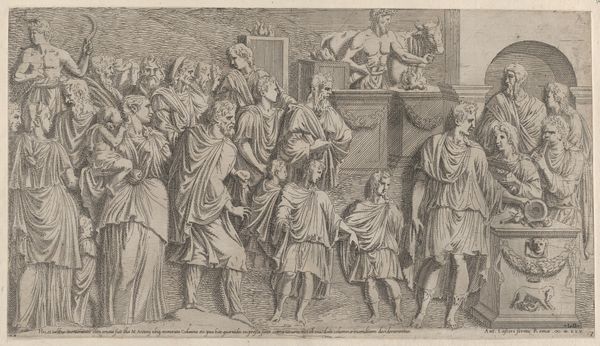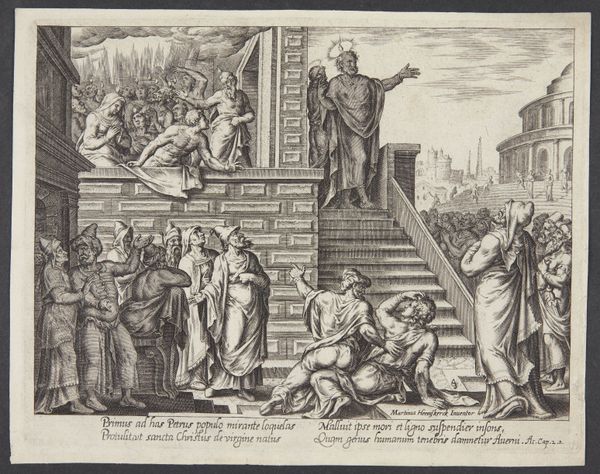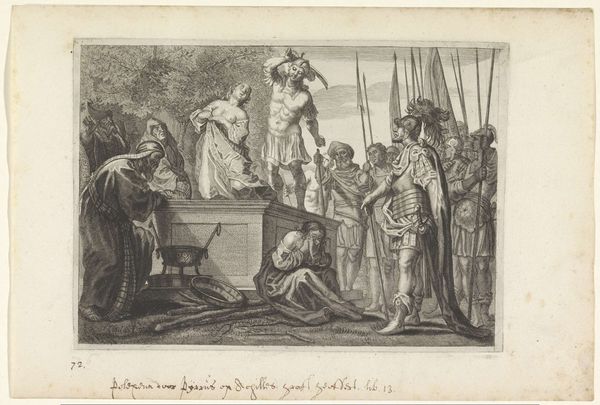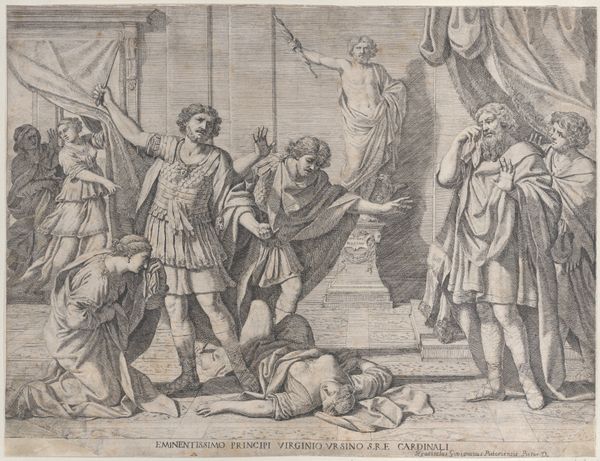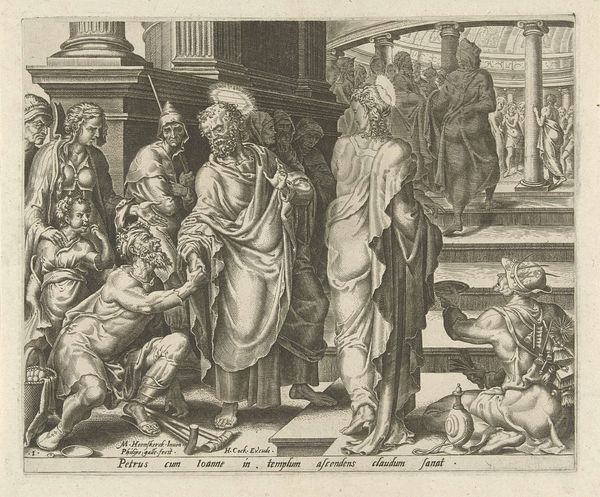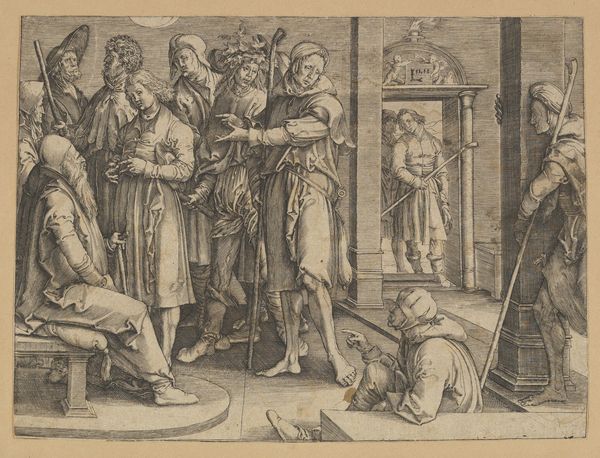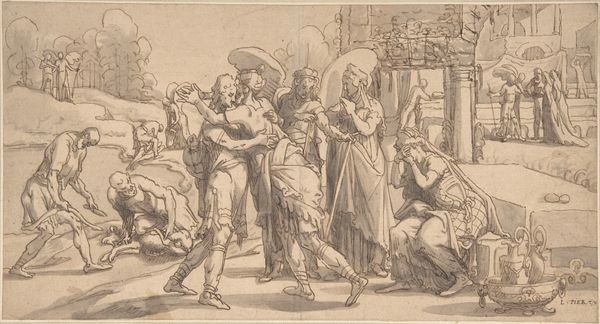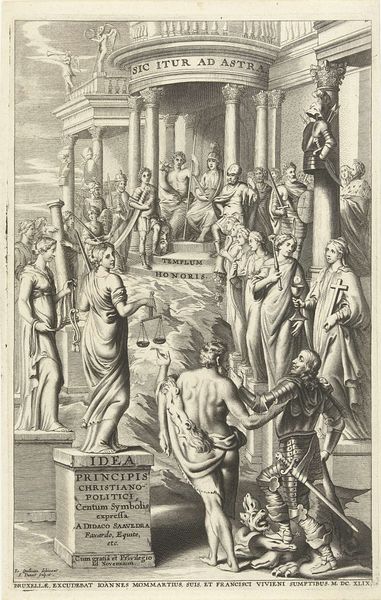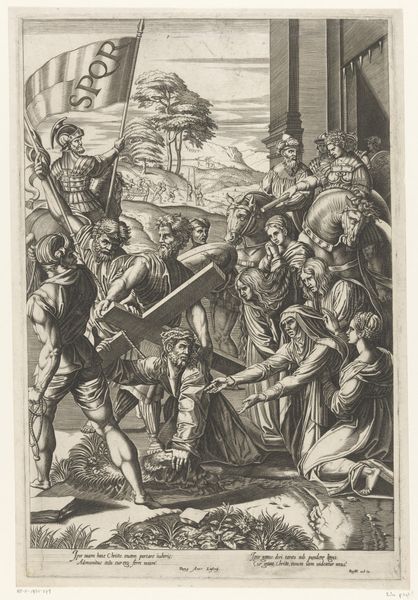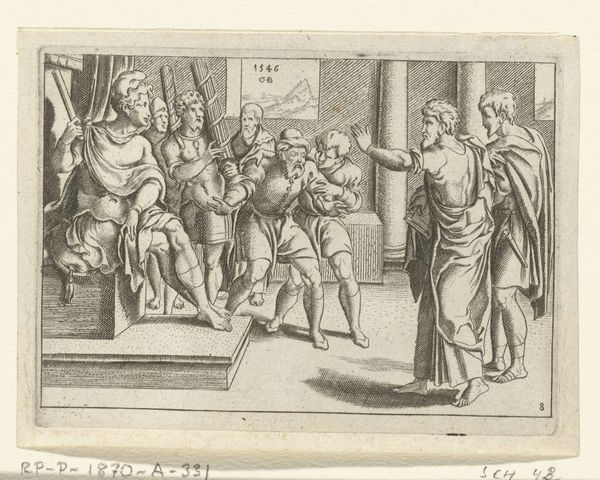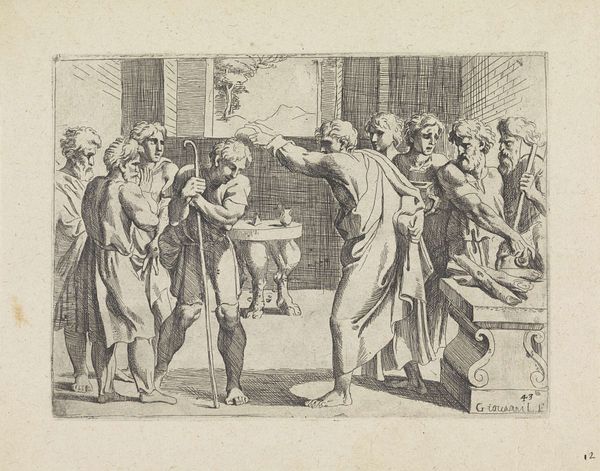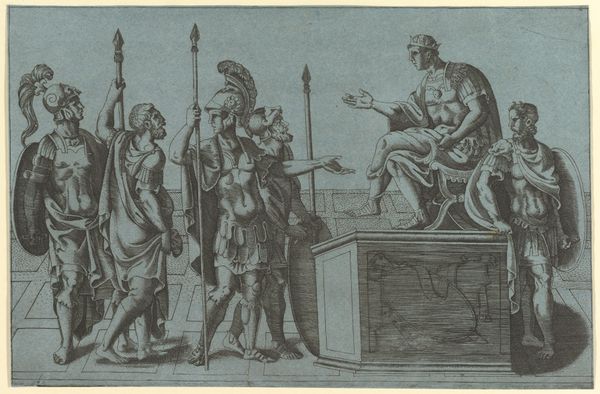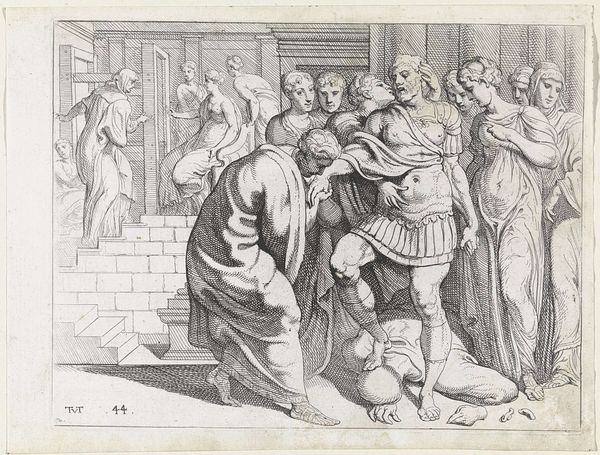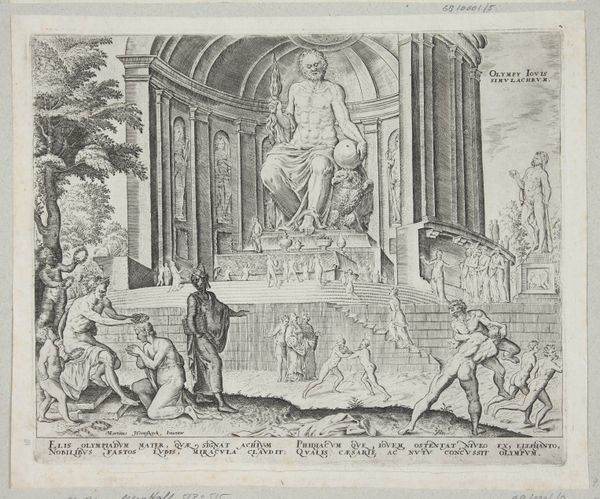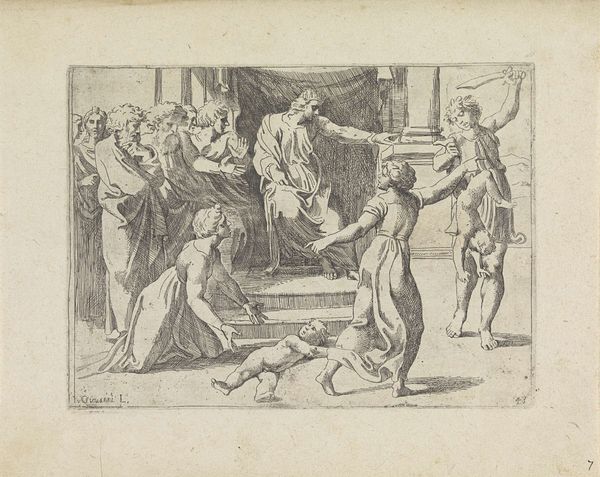
print, engraving
narrative-art
baroque
figuration
history-painting
engraving
Dimensions: height 104 mm, width 117 mm
Copyright: Rijks Museum: Open Domain
Curator: Today we’re looking at Antonio Tempesta’s "The Sacrifice of Polyxena," an engraving dating to 1606. It’s currently held in the Rijksmuseum. Editor: A grim scene! The linear quality really intensifies the stark, almost brutal atmosphere. There's a kind of minimalist dread in the lack of adornment. Curator: Indeed. As a Baroque piece, we see Tempesta exploring the drama of the moment through the figures’ gestures. The lines, though simple, powerfully convey emotion. Editor: Polyxena’s downward gaze and the executioner’s guiding hand signal resignation. Death as surrender, perhaps. And notice the faces in the background, partially obscured; this to me feels almost like the symbolic idea of communal memory looming behind the act, the Trojan War casting its long shadow. Curator: Note also how Tempesta has composed the scene. The architectural rigidity of the altar clashes deliberately with the organic roundness of the figures themselves. A dynamic tension arises from that contrast. Editor: And there's so much contained within the action—an acknowledgement of the power of appeasement and, in a way, almost an emblem for survival through cultural continuity. I'm struck by how this small print can evoke such deeply ingrained themes. Curator: Absolutely. And while the immediate impact might be somber, closer inspection reveals Tempesta's understanding of line, form, and how to convey layered narratives through careful construction. The work encapsulates both moment and context. Editor: Right—it’s a powerful example of how artistic choices can distill universal human themes through a specific historical lens. A study of controlled anguish.
Comments
No comments
Be the first to comment and join the conversation on the ultimate creative platform.
